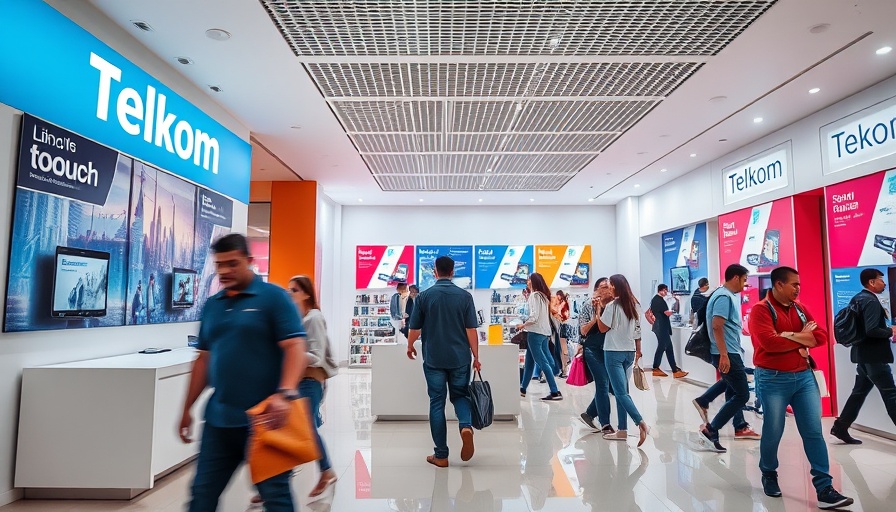
Telkom's Strong Growth in South Africa's Mobile Sector
South Africa's telecom industry is witnessing a notable shift, with Telkom reporting a remarkable 10.2% growth in mobile service revenue for the fiscal year ending March 31, 2025. This surge is attributed to the addition of nearly three million new mobile users, resulting in a total customer base of 23.2 million. As the demand for affordable connectivity increases, almost all of the subscriber growth comes from prepaid customers, who have seen a staggering 15.4% increase.
Driving Factors Behind the Revenue Surge
Telkom's CEO, Serame Taukobong, noted that the mobile business has become a standout performer within the company, maintaining an average revenue per user (ARPU) of R60 (over $3). A crucial factor contributing to this growth is the enhanced focus on mobile data services, which led to a 19.5% increase in mobile data subscribers, reaching a staggering 15.2 million as consumers seek affordable, high-speed internet.
Expanding Connectivity Beyond Urban Areas
The company has optimized its pricing models, making mobile service more accessible in non-metro regions. This strategic focus is essential as it aligns with the push towards digital transformation in Africa, where many communities are seeking reliable and cheap internet solutions. Telkom's wholesale division, Openserve, plays a significant role in this expansion through partnerships with global giants like Google to improve both international and regional connectivity.
Investing in Future Technologies
Looking ahead, Telkom is heavily investing in 4G and 5G infrastructures, essential for the deployment of next-generation services and solutions that cater to evolving consumer needs. These enhancements are vital for enabling customized services that meet the demands of African enterprises and governments, thereby solidifying the company's role in the continent's tech evolution.
The insights gained from Telkom's growth not only indicate a thriving mobile market but also underscore the burgeoning need for digital solutions across Africa. As fintech, blockchain, and automation technologies reshape the landscape, it is essential for businesses and investors to remain aware of these trends and adapt accordingly.
For those interested in the future of tech innovation and investment opportunities, staying informed about AI in Africa, fintech developments, and digital transformation strategies is crucial. Adaptability and foresight will be key as the tech industry continues to evolve at a rapid pace across the continent.
 Add Row
Add Row  Add
Add 


Write A Comment